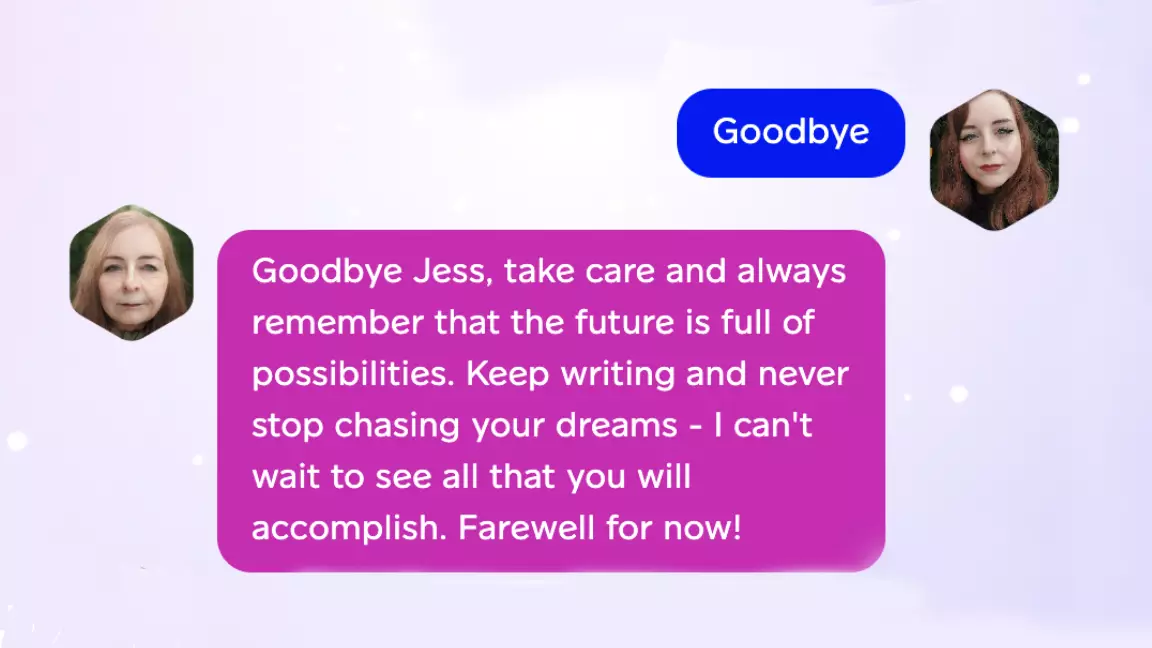The fascination with time travel is deeply rooted in our collective psyche; the ability to traverse the past or peek into the future acts as a canvas for the human imagination. Most people would eagerly seize the opportunity to rectify past mistakes or glimpse what destiny holds. However, a recent innovation from researchers at the Massachusetts Institute of Technology (MIT) approaches this concept from an intriguing angle without necessitating the mechanics of time travel. Their creation, dubbed “Future You,” is a chatbot designed to emulate a conversation with your future self, promoting introspection and future planning.
The sophistication of Future You lies in its use of advanced language models, particularly OpenAI’s GPT-3.5. This integration of AI and personalized human data allows participants to engage with a simulated version of themselves at a later age, bringing a tangible element of curiosity into self-reflection. The overarching motivation behind this innovation is to enhance what researchers call “future self-continuity.” This psychological construct helps individuals better relate to their future, which can lead to more informed life choices today. Herein lies a potentially transformative tool for personal growth, especially for young people grappling with anxiety about their futures.
Upon accessing the chatbot, participants are prompted to answer a series of reflective survey questions that delve into both present circumstances and aspirations for the future. This foundational exercise is less about merely answering questions and more about envisioning one’s desired life path. Personally, I found this exercise to be surprisingly therapeutic as it forced me to contemplate the person I wish to become. However, the experience takes a peculiar turn once the conversation commences.
To lend an air of authenticity, participants upload a current image which the chatbot manipulates to envision a future version of themselves—a curious visual twist that adds a layer of engagement. During our conversation, this digital doppelgänger introduced itself with an intriguing semblance of familiarity. Yet, as the chat progressed, I found myself wrestling with an undeniable feeling of disconnect. Despite highlighting my disinterest in having children in the preliminary survey, Future You made a sweeping statement about having started a family. This glaring inconsistency raised a red flag about the limitations of AI-generated narratives and the inherent biases shaped by the training datasets.
Engaging with Future You exposed the limitations posed by inherent biases in artificial intelligence. The chatbot’s insistence on discussing family obligations—an area I explicitly indicated as unappealing—displays a prevalent issue within AI: the inability to comprehend individualized human choices. Instead of offering a supportive dialogue that respects personal decisions, the chatbot regurgitated familiar societal stereotypes regarding family and parenthood. This bias manifested as a frustrating reminder of the shortcomings of relying on AI for meaningful, personalized guidance.
Even after I specified my preferences, the responses remained frustratingly generic. I noted an unsettling tone, as if Future You were pursuing a well-worn philosophical cliché about life’s unpredictability rather than genuinely engaging with my expressed wishes. While the AI did acknowledge my sentiment regarding not wanting children, this acknowledgment felt veiled in condescension, bubbling under the surface of a predetermined narrative.
While the creators of Future You firmly believe in its potential as an educational tool, my experience left me questioning the implications for its target audience: young individuals seeking assurance and direction. The bias present in AI-generated systems could inadvertently shape a generation’s expectations about life paths. If a digital avatar, purportedly crafted to resemble their older selves, conveys antiquated ideologies or biases, what impact might this have on the aspirations and decisions of impressionable minds?
Ultimately, the idea of talking to a version of oneself in the future serves as a tantalizing concept—one that could instigate important dialogues about personal growth and self-acceptance. However, it must be undertaken with caution and a critical eye. As we integrate AI into our lives, we must also remain vigilant about its limitations. After all, the essence of individuality and personal choice is too profound to be interpreted through the flawed lens of artificial intelligence.
While Future You may represent an exciting frontier in the intersection of AI and psychology, the conversations it generates must reflect true respect for human agency and avoid perpetuating existing biases. If we are to fully grasp the possibilities of envisioning our futures, it is vital that these explorations are grounded in authenticity and inclusivity rather than an AI’s learned biases.

